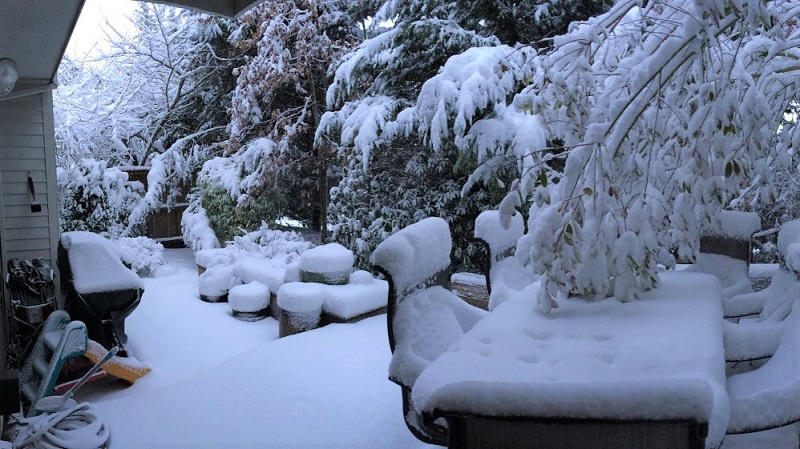I despise snow in Portland. As I’ve shared with many of you, I was never really a big fan of snow when it happened in Michigan when I was growing up either. Primarily it’s because I don’t like to be cold, and I don’t like to be wet. Snow manages to combine both of those elements into one, and being cold and wet at the same time has never been my thing. In particular, I don’t like snow in Portland because it means the city will be shut down for who knows how long. It starts out beautifully idyllic, but then as things melt and freeze again, and the microclimates laugh at us for wanting any sort of consistency, we could be looking at two to four days without reliable transportation. The worst year had us trapped in our house for eight days, and that was with a 3-year-old and a 5-year-old. If you ask me, snow in Portland snowballs out of control. (HA!)

It’s actually the snowball effect, not the snow itself, that I’m reminded of in this week’s Torah portion. I’m talking about a situation that continues to build on itself until it’s out of control. Whether it’s a global pandemic or a cycle of systemic oppression, when enough “snow” builds up and starts rolling away from us, it can quickly get out of hand.
Our double Torah portion this week, Behar-Bechukotai, warns us of the implications of the snowball effect in our own lives. Behar-Bechukotai focuses primarily on the laws of agriculture and land. What makes this section of text unique is that it takes the notion of land ownership and farming and uses that to create a society in which no one group holds complete control forever. We read about the 50-year land ownership cycle, in which we are required to allow the land to rest every seventh year. In the 50th year of the cycle, all land returns to its original owner. Imagine a farmer who falls on hard times because of a drought or poor crop. In order to sustain his family, he might sell off parts of his farm acre by acre. After 10 years he might have nothing left, and he might be forced off the land or have to find another way to make a living. According to our Torah laws, in the 50th year this farmer would receive back all his land and become his own landlord again.
In the midst of these laws, we read chapter 25, verse 35: “If your kinsman, being in straits, comes under your authority, and you hold him as though he is a resident alien, let him live by your side.” The Sifra, a midrashic commentary on the book of Leviticus, reads this verse literally as “If your kinsman stumbles.” In other words, it’s easier to support a person when they first begin to stumble than it is to pick them up after they’ve fallen. Like a snowball, problems are easier to control when they’re manageable in size before they’ve snowballed out of control.
In all the words of these parshiyot we are made aware that working to solve a problem before it becomes a catastrophe is of the utmost importance in maintaining a thriving, supportive community. As for the literal snow, well, there’s not much we can do about that.



